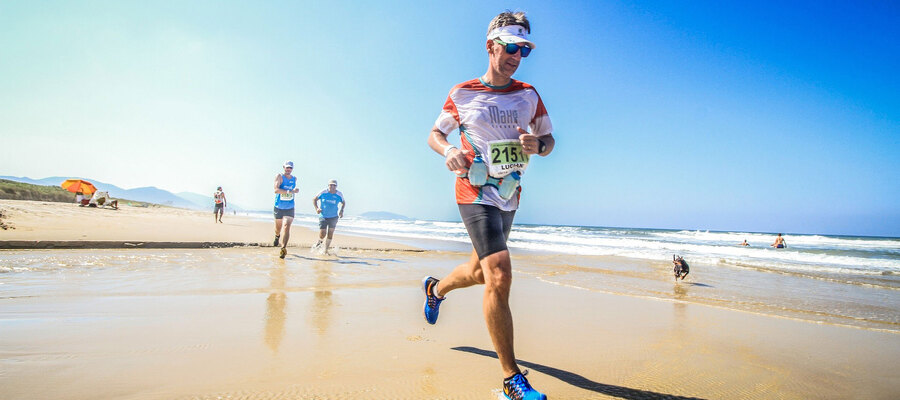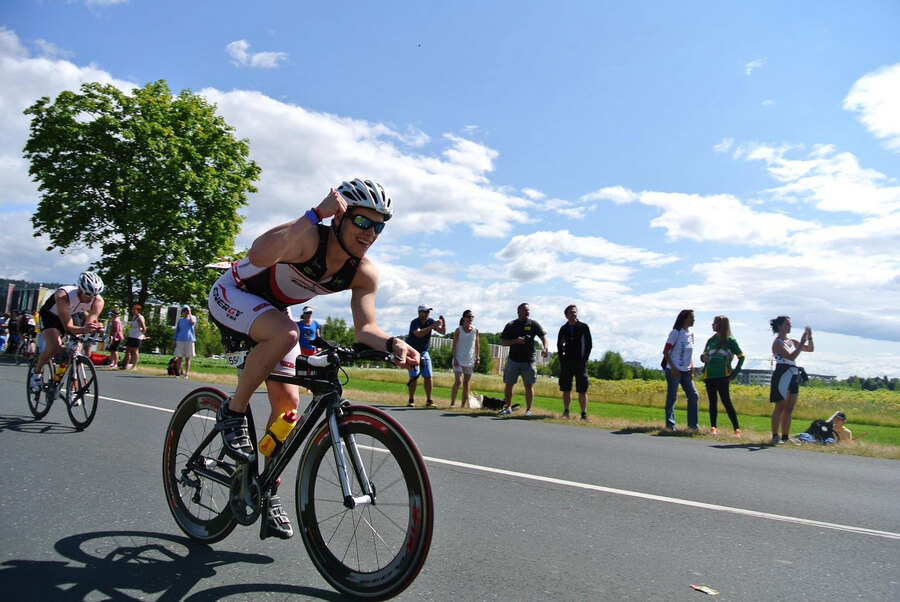
Can triathlon improve your mental health?
You may be familiar with the sport of triathlon: a multi-sport discipline in which athletes swim, bike and run. But can it improve our mental health? In this article, I will explore how it might.
What is it?
You have probably heard if triathlon, but you might not be familiar with the details of it.
Races are pretty similar: there is a swim, followed by a bike section, and finally a run. However, lengths vary dramatically. In elite competitions, there are four major levels:
| Distance | Swim | Bike | Run |
|---|---|---|---|
| Sprint | 750m | 20km | 5km |
| Olympic | 1.5km | 40km | 10km |
| 70.3 (half ironman) | 1.9km | 90km | 21km |
| Full ironman | 3.8km | 180km | 42km |
All of this happens back-to-back. Between stages, athletes come into an area known as transition where they pick up or deposit their bike.
Can it improve our mental health?
I conducted a literature search to see what research existed on the topic. The answer was nothing. Nobody has done any published research on triathlon and mental health.
However, there are good reasons to think it could provide benefit.
The main reason is that exercise is brilliant for our mental health. For a review of the evidence, see our book, Do More, Worry Less. It can be as effective as antidepressant medication or therapy. Therefore, anything that gets us out there doing more exercise is brilliant.
Of course, taking up any sport would do this? So, that begs the question...
Why triathlon?
There are a number of qualities that make it especially suitable for using it to improve our mental health:
It's hard
Sorry, I meant to say "it's a challenge". If you want to challenge yourself, triathlon is a great way to do it because it requires a lot of effort and the ability to stick with it. Races are rarely quick, so training builds up your mental muscles.

It requires structured training
Some people struggle to run 5km. But, for others, they can just go out and do it without any training. So, setting that as a goal doesn't make sense because it doesn't provide any motivation, and doesn't get you into a routine.
Triathlon, on the other hand, requires proper training.
You need to train across three disciplines, and deal with logistics like "when is the swimming pool open" and "when am I going to do what?" This forces you to bring some structure and order to your life.
It is multi-sport
Having to work on three different disciplines means that if you get bored or frustrated with one, you can focus on the others. It's easy to get stuck in a rut with one form of exercise, but you can't do that here.
It will probably hit a pain point
It can be a good way to challenge your anxiety. Maybe you're not a confident swimmer. Maybe you've never done open water or don't like the idea of getting involved in "the scrum" (the big group of swimmers at the start of a race). Maybe you find running embarrassing. Maybe you're worried about crashing your bike or hate the feeling of going too fast.
Somewhere, you will probably find an element that really taxes your anxiety and this is a great chance to face it, and defeat it, on your terms.
It can be done solo, or in a club
Many local areas have a club where you can meet other triathletes, get to know new people and benefit from the support and group sessions that clubs provide.
But, if you prefer to fly solo or don't have the mental energy to meet new people at the moment, you can also just get on with it by yourself. Therefore, it can suit either situation.
It requires mindfulness
For safety reasons, many races ban the use of MP3 players. That means you have a lot of time to be alone with your thoughts.
In the longest of all races, for example, the 140.6, the elite athletes take around eight hours to complete it. But not us mortals: the rest of us can take up to 17 hours to finish the lot.
Of course, such races are only for the most serious and experienced of us. But, whatever distance you are doing, it requires you to get comfortable with sitting with your own thoughts. It's another way to push yourself out of your comfort zone and show yourself that you are stronger than your anxiety leads you to believe.

What are the drawbacks?
There are several.
One is that it is not a good choice for people who don't currently exercise. This is because you're going to have to pick up three different sports at once, which is going to be super-difficult. It's much easier to pick one up first and then transition into triathlon.
Another is that it is expensive. It sounds pretty cheap if you already run, cycle and swim separately. And it's true that you don't need much extra gear: you don't need a fancy bike, for example. Any bike will do (trust me, I've tried it).
However, the bits that you do need can add up. For open water swims, for example, you're going to need to buy, rent or borrow a wet suit. And while you can do it without a tri suit, it does make things easier. Event registrations can be expensive, as well: sometimes as high as £70-100 for the bigger events.
How do I get started?
A good place to start is with smaller events designed specifically for non-triathletes.
In the UK, check out the Go Tri events and in North America, look for Give It A Tri. Other countries may operate similar programmes. These are beginner events, often with much-reduced distances and may not include a swim (run, bike, run, for example).
Summary
Triathlon doesn't have any magical properties to improve your mental health. However, if you're already using exercise to manage your wellbeing, it's a great choice because it has so many qualities that help us develop strong and healthy minds.
Related articles
Metadata
Published 11 June 2018. Written by Chris Worfolk.

